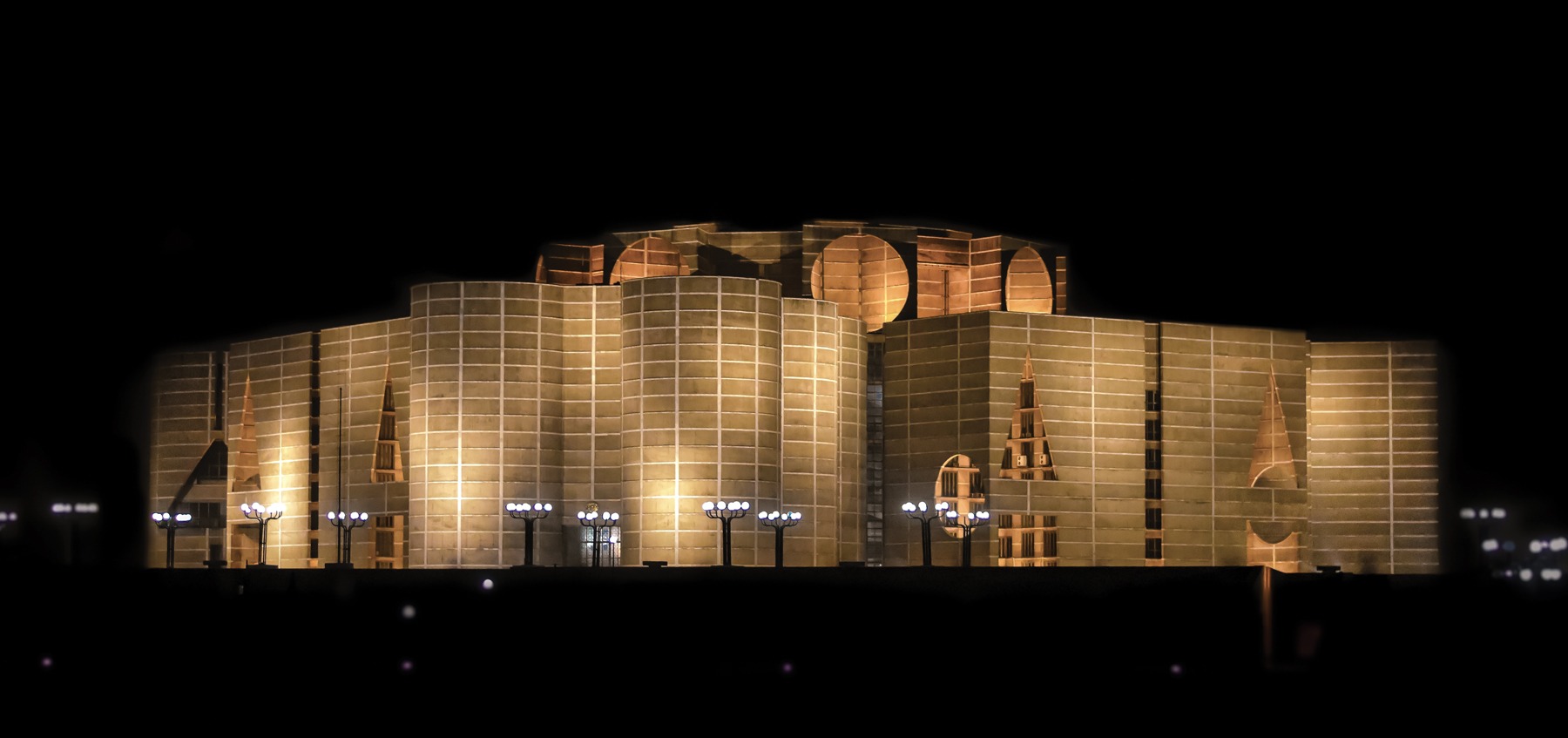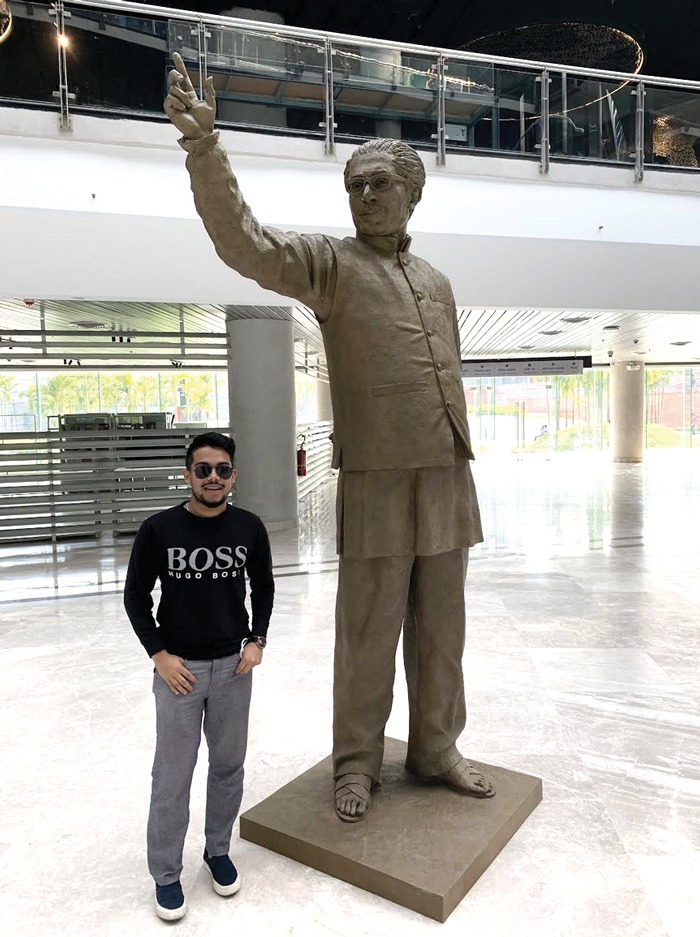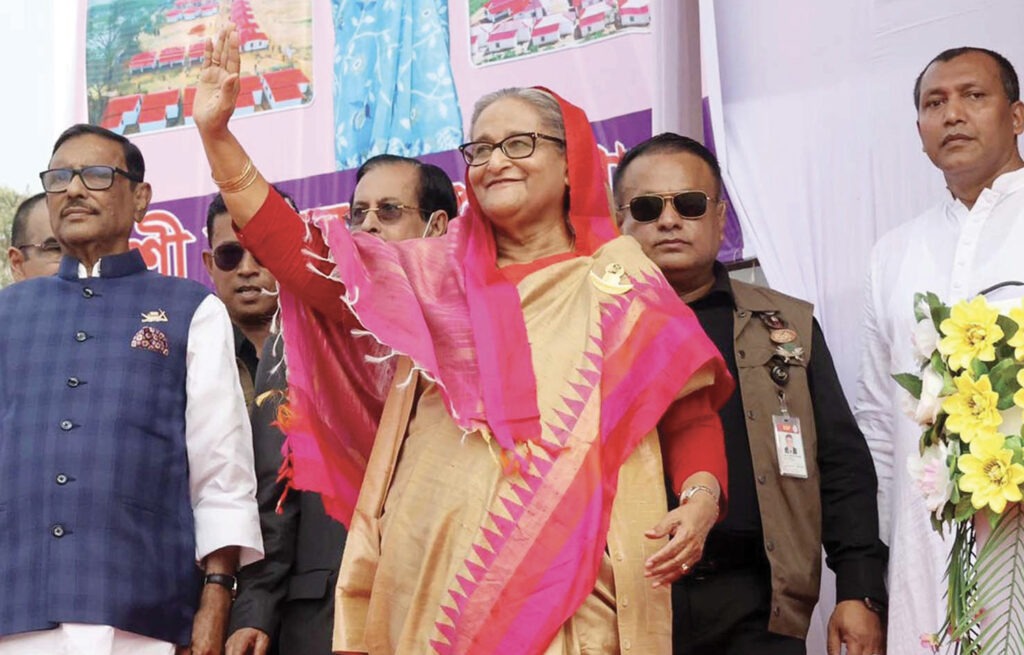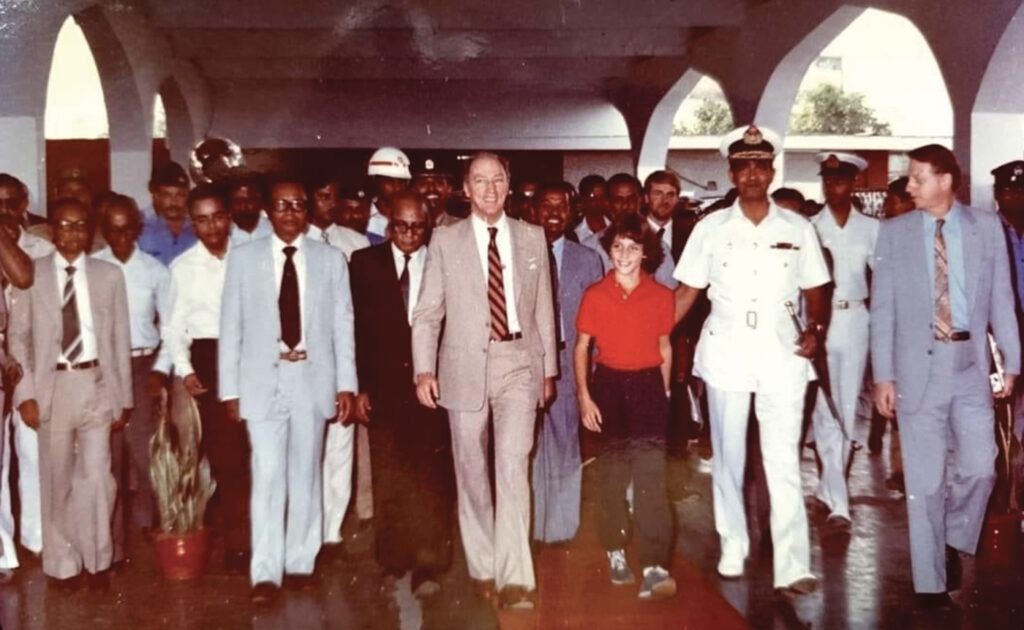Revisiting Bangladesh: Politics, Economics and Competitive Authoritarianism

Aftab Ahmed
As I arrived in my cherished hometown, Dhaka, the capital of Bangladesh, in December 2021, I felt deeply connected to the rich history of this remarkable country of 170 million people. I was there to reunite with my family after the lifting of pandemic travel restrictions and to re-evaluate the nation from a new perspective.
While political posters and placards are a common sight in Dhaka, the journey from the airport to my childhood home revealed an extraordinary scene: towering posters, festoons and statues paying homage to Sheikh Mujibur Rahman, Bangladesh’s revered founding father, who served as the country’s first president in the 1970s, adorned the landscape. Mujib, with his captivating persona and lasting legacy, commands profound respect throughout the nation.
His gruesome assassination, along with most of his family, in 1975, irreversibly altered Bangladesh for the worse. The tragic death of the country’s principal political architect left an indelible mark on the collective consciousness of the people, triggering a cascade of coups, countercoups, and constitutional aberrations. Fast forward to 2021, my visit coincided with two celebrations etched in the public psyche: Mujib’s birth centenary and the country’s 50th anniversary of independence.
This veneration, at times, feels imposed upon the electorate by the ruling party, rather than emerging from democratic processes. Billboards that prominently feature Sheikh Hasina, the current prime minister and one of Mujib’s surviving daughters, serve to magnify the influence wielded by the Sheikh family. While this practice may seem unconventional to foreigners, it has become an indispensable component of daily life in Dhaka.
Just a brief stroll away from my childhood home stood the residence of Begum Khaleda Zia, the widow of the slain military dictator General Ziaur Rahman. In 1991, she achieved the distinction of being elected the world’s second Muslim female prime minister. Since her arrest and imprisonment in 2018 on corruption charges — the latest episode in a bitter rivalry between Mrs. Zia and Sheikh Hasina, the leaders of Bangladesh’s Zia and Sheikh political dynasties and commonly referred to as “the battle of the two ladies” — Mrs. Zia’s residence looked a shadow of its former self. With her electoral participation restricted, her party, the BNP, facing decline, and Sheikh Hasina’s Awami League firmly in the driver’s seat, Bangladesh seems to be treading towards a de-facto one-party state via competitive authoritarianism, whereby the institutions of democracy remain but are undermined by corruption to produce elections that are neither free nor fair, but are taken at face value.

Adding to the complexity is the advantage gained by leaders in societies where power is consolidated through the tacit endorsement of a vision for a post-democratic world order, characterized by unhindered suppression of political adversaries, and devoid of adherence to the rule of law. Both the Prime Minister and Mrs. Zia, bear a shared responsibility in this intricate web of circumstances. The underlying moral of this story is that Bangladesh inadvertently finds itself drifting towards authoritarianism – a paradox considering that the very Awami League that led the struggle for independence and resisted against military governments now monopolizes power.
Beyond politics, my exploration of various sites in Dhaka included restaurants, museums, and opulent December weddings, providing me with a firsthand experience of the city’s remarkable growth. Towering skyscrapers, upscale dining establishments, and luxurious vehicles adorned this bustling cosmopolitan hub, exhibiting the grandeur that has come to define one of the world’s most vibrant metropolises. Bangladesh is perceived as a poor nation by outsiders, and there remains a degree of truth to this. Nevertheless, in recent years, the country has witnessed the world’s fastest growing ultra-wealthy population, which highlights a contrasting reality. Nowhere is this more evident than in the affluence carved within the capital’s infrastructural and social fabric.
It is true that poverty persists, with lower and middle class families grappling to meet their daily needs. Yet, alongside these difficulties, there is a flourishing and influential minority that wields considerable control over the nation’s wealth. Since 2008, Bangladesh has experienced rapid economic progress, propelled by substantial investments in ambitious mega-projects, including those selectively financed under China’s Belt and Road Initiative. Large scale investment ventures often involve businessmen closely aligned with the ruling elite or those holding influential positions within the Awami League.
A striking manifestation of the interplay between business and politics is represented in parliament. The 2018 general elections, tarnished by allegations of irregularities, electoral manipulation and coercion, yielded a staggering outcome wherein more than 60 percent of MPs hailed from the business sector. Aptly labeled the parliament of millionaires, an astonishing 82 percent of MPs boast wealth exceeding a million Bangladeshi Takas. A mere 0.6 percent of the population commands a similar financial status.
In attending events where some of these individuals were present, what struck me most was their nonchalant attitude and apparent lack of concern. It seemed that owning secondary residences in destinations like Dubai and Malaysia was viewed as ordinary, without any scrutiny into the origin of the funds invested from the domestic economy. Although I humbly acknowledge the privilege that graced my upbringing, the ostentatious lavishness on display left me astounded.

Regrettably, it became evident that the fervent Bengali spirit, once dedicated to liberation struggles, grassroot movements, and the ousting of dictators, had been relinquished or abdicated, especially by the ruling class. This stemmed to an extent, from the country’s failure to organize free, fair, credible, and inclusive elections in the past decade, coupled with the ruling party’s abandonment of its own democratic principles.
Ottawa’s foreign policy story with Dhaka has been a colourful one. In 1971, in a display of political acumen and moral fortitude, Pierre Elliott Trudeau demonstrated unequivocal support for Bangladesh’s liberation struggle. Whereas his western allies, including the duo of Richard Nixon and Henry Kissinger, backed the Pakistani military junta’s brutal campaign to suppress burgeoning Bengali nationalist sentiments. The rest, as they say, is history.
Trudeau’s stance earned him Dhaka’s esteemed Liberation War Honour in 2016, in appreciation of Canada’s steadfast commitment to Bangladesh’s journey towards independence. Fast forward to 2023, what is the rationale behind Canada’s vested interest in Bangladesh, and why should Canadians pay attention to this country? First, since the 1980s, Bangladesh has made remarkable strides in its socioeconomic journey, primarily through investments in health care, female empowerment schemes, and textiles. This approach has positioned the country as one of the world’s fastest-growing economies, attracting interest from global powers.
Second, the persistent struggles of Bangladesh to establish and consolidate democratic institutions raise major concerns for liberal democracies. Beijing’s relentless drive to exert its influence on Dhaka became evident through the dissemination of its digital authoritarian tools and high levels of foreign direct investment. China’s exportation of governance frameworks toward the country is vividly exemplified by Bangladesh’s Digital Security Act, whose draconian nature has stifled dissent, curtailed freedom of thought, and suppressed independent media – an alarming manifestation of the consequences that can befall an underdeveloped democracy when subjected to the political influence of Beijing’s networked authoritarianism.

Third, within the context of Europe’s ongoing debates on immigration, Bangladesh has provided refuge to over one million Rohingyas displaced from neighboring Myanmar, establishing the largest refugee population worldwide. On one level, this gesture underscores Bangladesh’s pledge to upholding human rights and fostering global solidarity. On a deeper level, it also highlights Sheikh Hasina’s astute navigation of international political dynamics, skillfully averting scrutiny from Western powers that may have otherwise questioned her adherence to democratic principles and human rights.
Upon returning to Canada, I could not ignore the philosophical predicament clouding Bangladesh’s developmental trajectory. The Awami League and Bangladesh have become inseparable, with this narrative progressively institutionalized via public policy. Whatever they say must be taken as truth. And there is limited room for discourse on whether their version of the truth is actually true or not.
Dissent, regarded as an undesirable negative externality, is suppressed via policy tools, giving rise to a marginalization of human rights. Not surprisingly, given the costs associated with civic engagement, apathy towards politics has taken hold amongst citizens. As voters gear up for upcoming elections at the end of this year, it will serve as a litmus test to determine whether Bangladesh can sustain its democratic aspirations.
Let there be no doubt that Sheikh Hasina’s opponents share responsibility for democratic erosion, having made ruthless efforts to undermine the Awami League’s very existence from 1975 to 2008. Inspired by her father’s overarching vision for a people’s republic, I, as a son of Bangladesh who cares deeply about its future, urge Sheikh Hasina to uphold democratic principles, promote inclusive growth, and prioritize the well-being of the people who have acclaimed her as one of the world’s most celebrated female leaders.
Aftab Ahmed is a Master of Public Policy candidate with the Max Bell School of Public Policy at McGill University, where he is the editor-in-chief of the policy newsletter The Bell. Aftab is a columnist for the Bangladeshi English-language newspapers, The Daily Star and Dhaka Tribune.
